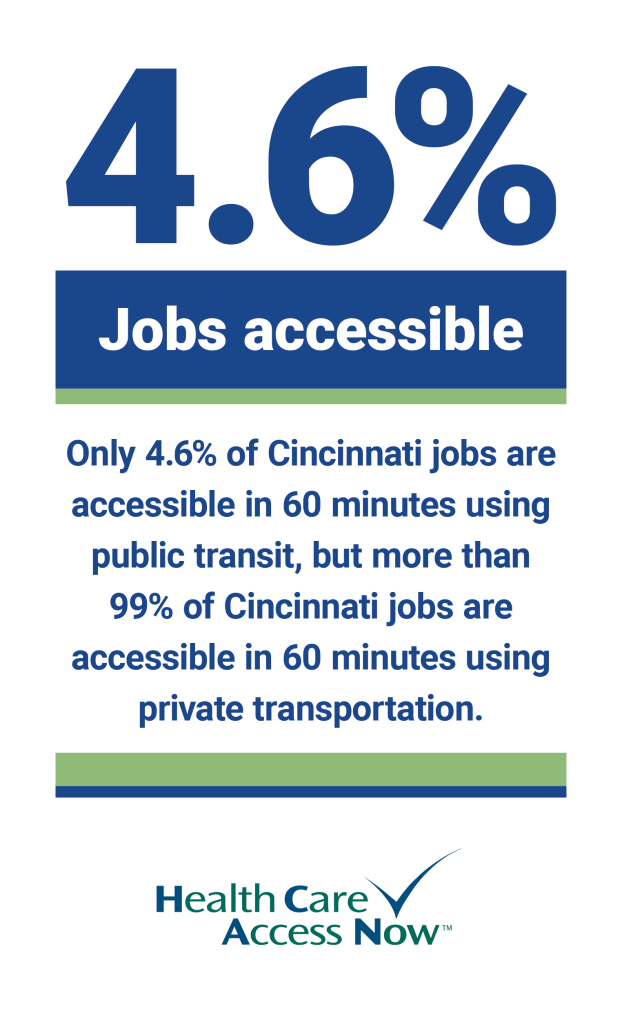The link between mental health and transportation barriers

Transportation is a major social determinant of health and health equity. It’s one of the most frequently needed of the HUB Pathways that Health Care Access Now (HCAN)’s Community Health Workers (CHWs) address with clients.
The ability to access reliable, convenient, safe transportation is intertwined with mental health. It goes both ways: Mental health issues can affect a person’s ability to access reliable transportation, and a lack of reliable transportation can isolate people, which increases the risk for certain mental health issues.
What does it mean to have reliable transportation?

Within the last year, the cost of used cars has increased by more than 40 percent, while the price of new cars has gone up by about 12 percent, with the average price of a new car coming in at close to $46,000. Gas prices have also been spiking, with the current average price per gallon in Cincinnati hovering right around four dollars. It’s been on a steady climb ever since a brief dip in prices during the height of the COVID-19 pandemic.
Many people cannot afford to own a car. Break that down further: Many people cannot afford to own a car that will not break down unexpectedly. Break that down even further: Many people cannot afford to fill their gas tank.
So, when an individual doesn’t have a working personal vehicle, their options are limited to either relying on friends or family members, calling a ride share service—which can be very expensive—or taking public transportation. But because infrastructure and transportation policies in the United States has been concentrated on building roads, with less support for public transport, taking the bus can erase hours from someone’s day, “contributing to health hazards and segregating communities,” according to an article in Health Affairs. The same article states that those who are reliant on public transportation are disproportionately people of color, women, and low-income.
Limits on time and freedom
When an individual doesn’t have access to reliable transportation, it limits their time and their freedom. This issue can take many forms. It may cause dependence on friends and family. It may mean that less important errands and appointments get delayed or eliminated altogether. Even imperative tasks such as medical care and prescription pick-up can fall to the wayside.
If someone has a mental health issue, such as depression, everyday activities can seem daunting, if not downright impossible. Add a transportation barrier to the mix, and it becomes that much more difficult for that person to seek help—or even get to the grocery store, for example.
For an otherwise mentally healthy individual, facing a challenge like not having reliable transportation can take its toll. If leaving the house means a two-hour trip each way to and from your destination, it can become easier just not to go. This can result in isolation from family and friends, which has been shown to increase the likelihood of mental health issues forming.
Like most social determinants of health, the issue of reliable transportation is complex. A lot of disparate issues contribute to its continued prominence as a barrier to health—both of the body and of the mind.






